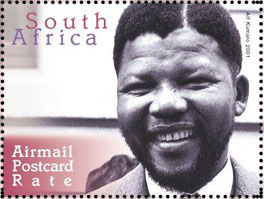 As the world pays tribute to Nelson Mandela, we reflect on the South African struggle.
As the world pays tribute to Nelson Mandela, we reflect on the South African struggle.
Five years before Mandela was freed from the jail (where he spent almost a third of his life) and nearly a decade before he won the Nobel Peace Prize and became president of South Africa, NEBHE created the New England South African Student Scholarship Program.
The program enabled New England colleges to support black South African students at integrated “open universities” in racially divided South Africa. At the time, black students and faculty often had to live in townships and commute on several buses to their campuses.
The talk then in the U.S. focused on “divesting” from South Africa. But the New England higher ed program offered a way to strike a more immediate blow against apartheid.
NEBHE urged New England colleges and universities to make contributions to a scholarship fund to provide room, board and living expenses to nonwhite students in some of the major English-speaking universities.
In 1990, NEJHE (then called Connection) published a status report on then-slow progress being made in South Africa when Mandela was released from prison. The piece written by Margaret Touborg, president of the Cape Town Fund and director of the Open Society Scholars Fund, which ran the NEBHE program, quoted a South African social work student as saying: “We are only at the beginning. But what is important and what feels good is that we had a part in making [Mandela’s release] happen. We are the future now.”
[ssba]
